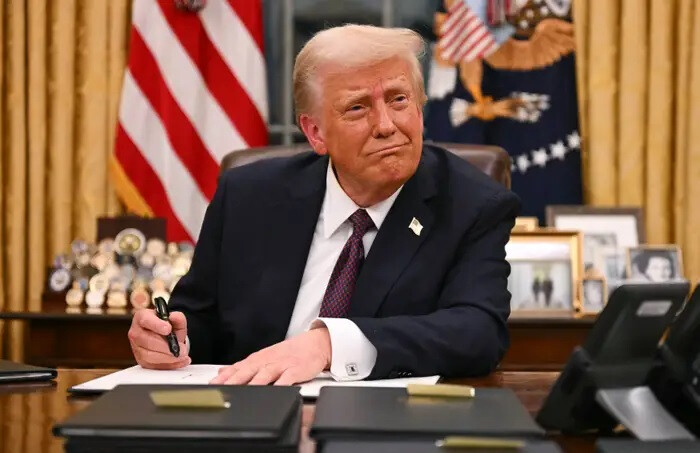
Singapore - As the United States gears up to impose new tariffs, a significant portion of Singaporean businesses anticipate a hit, with nearly half planning to pass on the increased costs to consumers. A recent snap poll conducted by the American Chamber of Commerce (AmCham) in Singapore revealed that 45% of respondent companies are considering this strategy.
The AmCham Singapore, in its announcement on Wednesday, stated that other companies intend to diversify their supply chains to reduce reliance on markets with high tariff rates or capitalize on opportunities to gain market share from slower-moving competitors.
The survey involved 36 companies, with over two-thirds identifying potential retaliatory tariffs on nations taxing US imports as a greater business concern than existing trade measures. Furthermore, nearly 70% (69%) of respondents expect the new tariffs to have a significant or moderately negative impact on their business operations.
These findings emerge as anticipation builds for an expected announcement from Washington, where it is believed the former President is set to unveil broad reciprocal tariffs on key US trading partners, a move he has reportedly dubbed a "day of liberation." While specific details remain undisclosed, the potential ramifications for the Asia-Pacific economic landscape are under close scrutiny.
Indeed, Wednesday saw mixed trading across Asia-Pacific markets, with Singapore's Straits Times Index, a benchmark gauge, falling by 0.4% to 3,954.21.
Conversely, approximately 20% of surveyed companies foresee no impact on their business from the impending tariffs. However, Frank Debets, Asia-Pacific Customs and Trade Leader at PwC Singapore, expressed skepticism. He suggested that businesses anticipating no impact might find themselves vulnerable to knock-on effects.
"It would be surprising if companies reporting no impact are fully insulated from the knock-on effects," Mr. Debets explained. "For instance, their suppliers and customers may be affected, hurting their ability to buy or sell products or services, or they may be caught by retaliatory measures elsewhere." 1 He advised companies confident in their immunity to conduct thorough due diligence to ensure their belief is well-founded.
The urgent poll was a collaborative effort by AmCham Singapore, BowerGroupAsia Singapore, and PwC Singapore, with responses collected between March 3rd and 10th.
In recent years, the US has pursued a policy of imposing tariffs on various countries, aiming to protect domestic industries and address trade imbalances. Notably, the previous administration's trade war with China involved substantial tariffs, causing significant disruptions to global supply chains.
The anticipated new tariffs are expected to be broader and potentially higher than previous measures, raising concerns about a more profound impact on the global trade order. The risk of retaliatory tariffs from US trading partners, as highlighted in the AmCham survey, further intensifies the potential for escalating global trade tensions.
Singapore, with its open economic structure, is highly reliant on external trade, making it particularly susceptible to shifts in US trade policy. Singaporean companies exporting to the US or deeply integrated into US-centric supply chains are likely to face considerable challenges due to the impending tariffs.
The survey results indicate that many Singaporean firms are likely to respond by passing increased costs to consumers, diversifying supply chains, or seeking to expand their market share. However, amidst growing uncertainty in the global trade environment, Singaporean businesses will need to maintain a long-term focus on enhancing their competitiveness and identifying new avenues for growth.
[Copyright (c) Global Economic Times. All Rights Reserved.]




























